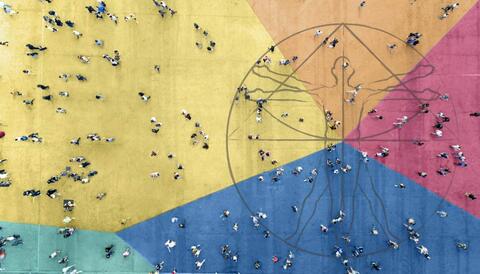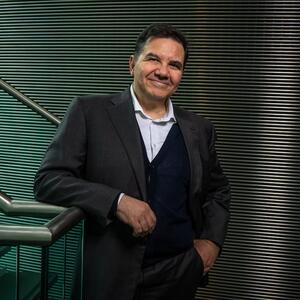Written by
Published
Category
Key topics
Current models of business enterprise and economic growth are the main barriers to delivering a green recovery. Imperial’s Leonardo Centre on Business for Society offers a platform for collaborative efforts to remove those obstacles
The problem: the current form of business enterprise
Planetary and social imbalances produced by human activity reinforce each other in a deadly spiral. But environmental destruction and socioeconomic inequality do not need to be an inevitable consequence of economic growth. It is possible to create a virtuous spiral between prosperity, and social and environmental regeneration. This requires a complete rethink of the logic that drives our economies and our business enterprises – a new logic of business enterprise that rewards just, fair and inclusive economic development.
Without doubt, business today is not aligned to this agenda and still has a long way to go. At the Leonardo Centre on Business for Society, a multi-faculty centre of excellence at Imperial London, we believe today’s logics of business enterprise and economic growth models are the main barriers to delivering a green recovery.
The solution: a society in which companies pursue profit for societal impact
The solution to both societal and competitive challenges lies in creating a radically innovative form of business enterprise; one that is designed to compete on the basis of its superior capabilities in creating economic and human value for its stakeholders (e.g. customers, employees, suppliers, business partners, investors and local communities).
This form of business integrates the interests and the voice of the investors in financial, human, social and natural capital. This requires a redesign of the firm’s governance and strategic decision processes, incentive and control systems, innovation and marketing processes, supply chain and talent management, as well as leadership models and cultural traits.
At a systemic level, this form of enterprise will be able to generate a positive cycle between economic prosperity, social equity and planetary regeneration that ensures a fair distribution of the opportunities to flourish for all individuals, organisations and societies.
But how can firms manage the transition towards this stakeholder-centred logic of business enterprise? What are the innovation, experimentation, learning and change processes necessary to evolve to this inclusive, regenerative and profitable organisational form?
To regenerate business for society, we propose a collaborative model with business, policymakers and civil society to explore, innovate and co-create the evidence-based transformational change processes through a combination of behavioural data, organisational experimentation, and scaling of the best solutions.
The Leonardo-Golden dataset: a unique behavioural approach
Previous attempts to quantify and leverage sustainability actions in companies to inform how we transition to a carbon-neutral future that is just and socially equitable have been limited by the coarse-grained aggregated descriptions of corporate social responsibility.
We have developed the Leonardo-Golden dataset, the first global dataset of corporate initiatives targeted at social and environmental regeneration. We used advanced machine-learning algorithms and a unique methodology that estimates the optimal distribution of effort across the UN Sustainable Development Goals (SDGs) and across alternative actions to pursue them within business activities.
The data collected and codified by Leonardo-Golden offers a robust baseline assessment of the status of an organisation in terms of the SDGs and the way it aims to contribute to them. This is a quantitative and objective basis to create sustainability strategies that optimise financial performance as well as social and environmental impact.
Developing an optimal portfolio of corporate sustainability behaviour
By comparing companies’ sustainability actions, we can estimate the optimal distribution of efforts across SDGs and types of behaviour that maximise financial performance and social-environmental impact for companies within each sector.
Overall, our goal is to provide managers, industries, investors, policymakers, civil society actors and academia with a view on the sustainability of an enterprise that is unique, statistically independent and complementary to standard analysts’ ESG scores and emissions data. We believe this complementary view is needed to help design, quantify and foster the systemic evolution towards forms of enterprise that can enable economic prosperity to coexist with social justice, regeneration of nature, and mitigation and adaptation to climate change.
Co-creating and scaling a new logic of business enterprise
In addition to this data-driven work, discovering a new logic of business enterprise in the Anthropocene requires all stakeholders (e.g. business, government, policymakers and regulators, civil society organisations, and academia) to come together to reimagine their roles and interdependencies in the ecosystem of change.
We share our diverse perspectives, approaches and experiences through co-laboratories (organised in thematic workshops during which participants share their experiences with organisational change challenges and learn from data insights). In this way, we can ideate innovative forms of change interventions and co-design scientifically sound and strategically orientated experiments inside companies and with their stakeholders to identify the best change approaches to core elements of business.
The most effective solutions can then be scaled across the organisation and its sector through collaborative efforts where business and scientific expertise is leveraged through appropriate policy initiatives.
Leonardo Centre on Business for Society
The Leonardo Centre on Business for Society has been established to contribute to this critical rethinking and transformation of the way we do business. Leonardo is a collaborative platform for business, policymakers, civil society and academia to co-create systemic change at scale. We are at the heart of a cross-disciplinary community of 15 Imperial London research centres and a global community of more than 150 scholars in 60 universities around the world working on a common overarching research agenda: a more equitable, prosperous, and sustainable future.
This article originally appeared on Medium.





